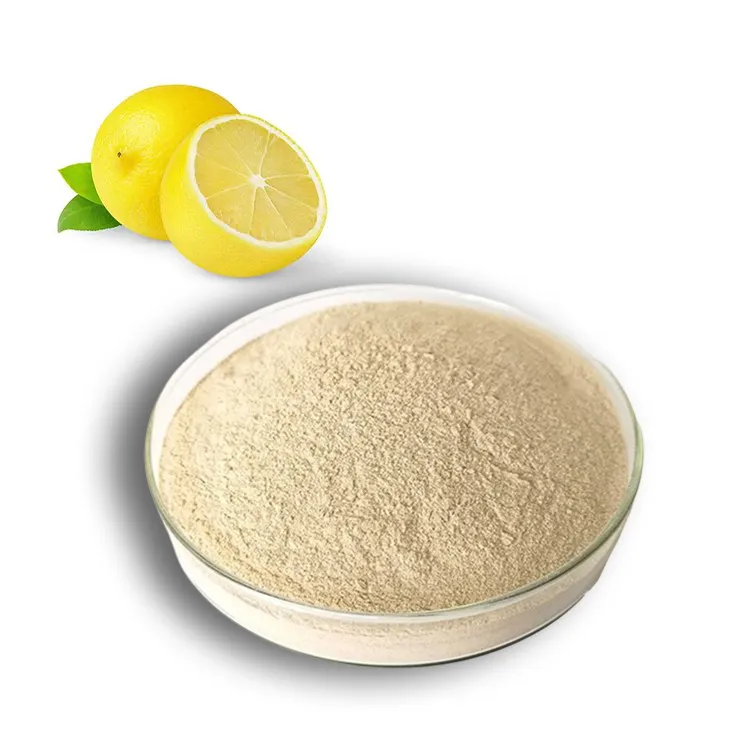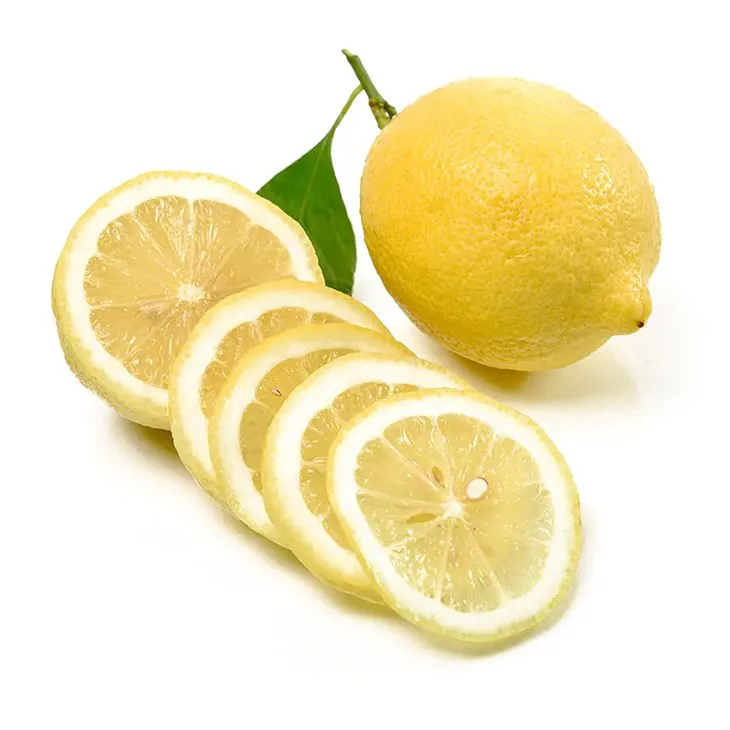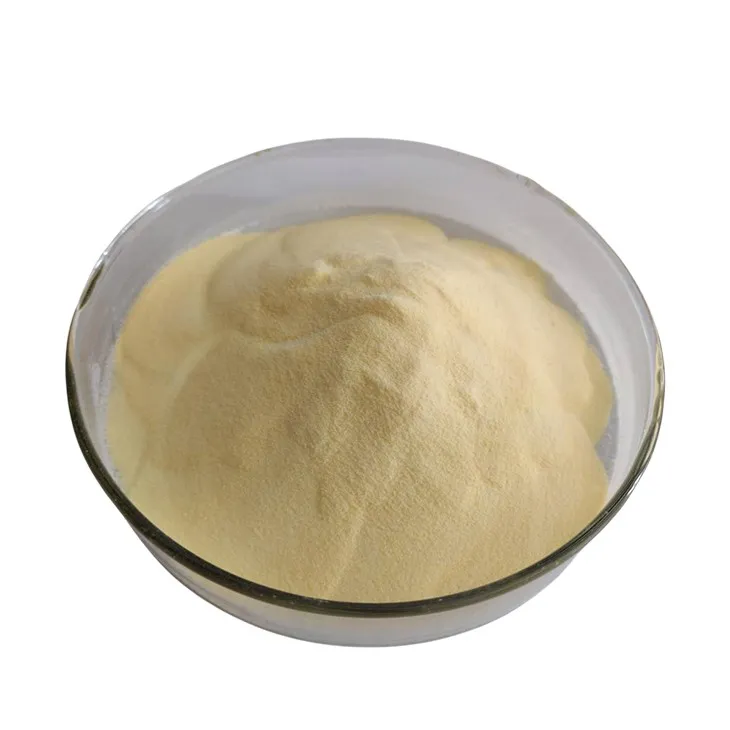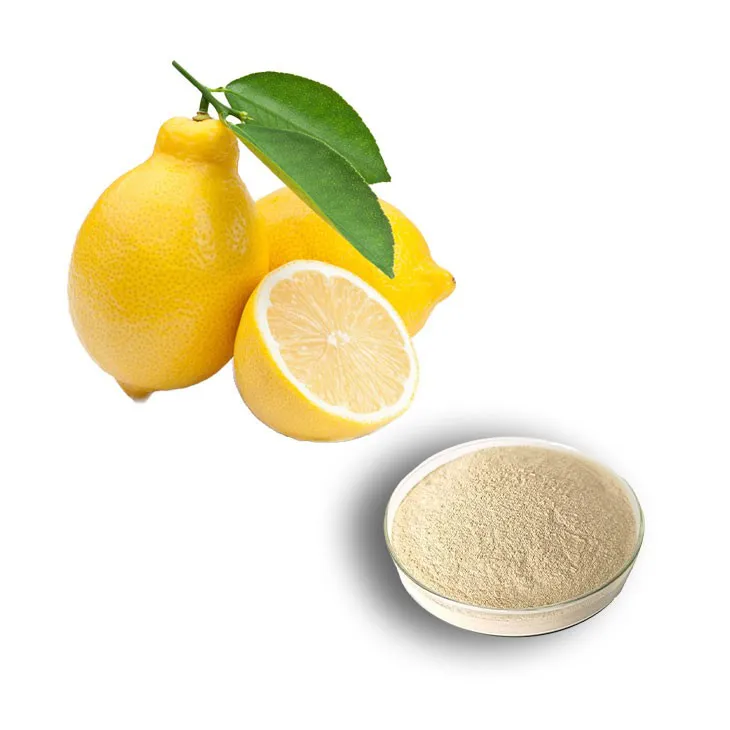- 0086-571-85302990
- sales@greenskybio.com
Lemon extract suppliers.
2024-12-01

1. Introduction
In recent years, Lemon Extract has emerged as a highly sought - after ingredient in various industries. Its unique flavor and potential health benefits have contributed to its growing popularity. As a result, the demand for reliable Lemon Extract suppliers has increased significantly.
This article will explore the key characteristics that make an ideal Lemon Extract supplier. These include sustainability, a diverse product range, and excellent customer service.

2. Sustainability
2.1 Environmentally - Friendly Extraction Methods
Sustainability is a crucial factor for lemon extract suppliers. One of the main aspects of this is using environmentally - friendly extraction methods. Traditional extraction methods may involve the use of harsh chemicals or large amounts of energy, which can have a negative impact on the environment.
Modern and sustainable suppliers are turning to more natural extraction techniques. For example, some are using cold - pressing methods. This process involves mechanically pressing the lemons to extract the juice, which is then further processed to obtain the extract. Cold - pressing helps to preserve the natural flavor and nutritional components of the lemons without the need for excessive heat or chemical solvents.
Another approach is supercritical fluid extraction. This method uses a supercritical fluid, such as carbon dioxide, which has properties between those of a gas and a liquid. Supercritical carbon dioxide can effectively extract the desired compounds from the lemons while being relatively non - toxic and leaving little residue. It also allows for better control over the extraction process, resulting in a higher - quality extract.
2.2 Promoting Sustainable Cultivation of Lemons
In addition to using sustainable extraction methods, an ideal lemon extract supplier should also be involved in promoting the sustainable cultivation of lemons. This includes working with lemon growers who follow sustainable farming practices.
Sustainable lemon cultivation involves several aspects. Firstly, it requires proper water management. Lemons need an adequate supply of water, but over - irrigation can lead to water wastage and soil degradation. Suppliers should encourage growers to use drip irrigation systems or other water - efficient methods.
Secondly, pest control is an important part of lemon cultivation. Instead of relying solely on chemical pesticides, sustainable growers use integrated pest management (IPM) strategies. This may involve introducing natural predators of pests, using pheromone traps, or applying biological pesticides.
Thirdly, soil conservation is essential for long - term lemon production. Growers can practice crop rotation, which helps to maintain soil fertility and prevent the build - up of pests and diseases. They can also use organic fertilizers to improve soil quality.

3. Diverse Product Range
3.1 Different Concentrations of Lemon Extract
A good lemon extract supplier should offer a diverse product range, especially in terms of different concentrations of lemon extract. Different applications require different levels of lemon flavor and intensity.
For the food and beverage industry, a lower concentration of lemon extract may be suitable for products like light - flavored lemonade or yogurt, where a subtle lemon flavor is desired. On the other hand, a higher concentration may be used in products such as lemon - flavored candies or strong - tasting lemon liqueurs.
In the cosmetic and personal care industry, different concentrations are also needed. A lower concentration may be used in products like mild - scented hand creams or body lotions, while a higher concentration can be incorporated into more intensely scented lemon - based shampoos or bath products.
3.2 Varieties of Lemon Extracts
Besides different concentrations, suppliers can also offer different varieties of lemon extracts. For example, they can provide extracts from different lemon cultivars, such as Eureka lemons, Meyer lemons, or Lisbon lemons.
Each variety has its own unique flavor profile. Meyer lemon extract, for instance, has a sweeter and more floral flavor compared to the more tart Eureka lemon extract. This allows manufacturers in various industries to choose the type of lemon extract that best suits their product requirements.
Suppliers can also offer lemon extracts with additional components. For example, they may provide lemon extract with added vitamins or antioxidants, which can be appealing for health - conscious consumers in the food and supplement industries.

4. Customer Service
4.1 Technical Support
Customer service is a key aspect of being a successful lemon extract supplier. One important part of this is providing technical support to clients.
In the food and beverage industry, clients may need advice on how to use lemon extract in different formulations. For example, a bakery may be unsure about how much lemon extract to add to a lemon cake recipe to achieve the perfect balance of flavor. The supplier should be able to offer guidance based on their expertise in lemon extract properties and flavor interactions.
In the cosmetic industry, technical support can be equally important. A skincare manufacturer may want to know how lemon extract can be incorporated into a product without causing skin irritation. The supplier should be able to provide information on the stability and compatibility of the extract with other ingredients in the formulation.
4.2 Quick Response Time
Another crucial element of customer service is having a quick response time to inquiries and orders. In today's fast - paced business environment, clients expect prompt responses.
When a client has an inquiry about a product, such as its availability, price, or specifications, the supplier should respond as quickly as possible. This can be achieved through efficient communication channels, such as email, phone, or online chat platforms.
Similarly, when it comes to orders, a quick response time is essential. The supplier should confirm the order promptly, provide an estimated delivery time, and keep the client updated on the progress of the order. This ensures smooth business transactions and helps to build a good relationship with the client.

5. Quality Control
5.1 Raw Material Inspection
Quality control is an integral part of the operations of a lemon extract supplier. One of the first steps in quality control is raw material inspection.
The lemons used for extraction should be carefully inspected for quality. This includes checking for signs of disease, damage, or improper ripeness. Only high - quality lemons should be used for extraction to ensure the quality of the final extract.
Suppliers should also verify the origin of the lemons to ensure that they come from reliable sources. This may involve working with trusted growers or conducting audits of the lemon - growing farms.
5.2 Production Process Monitoring
During the production process, the extraction and subsequent processing steps need to be closely monitored. This includes ensuring that the extraction methods are carried out correctly and that the equipment is functioning properly.
Any deviations from the standard operating procedures should be detected and corrected immediately. For example, if the temperature or pressure in the extraction equipment is not within the specified range, it can affect the quality of the extract.
Quality control personnel should also sample the extract at different stages of production to test for parameters such as flavor, aroma, and chemical composition. This helps to ensure that the final product meets the required quality standards.
5.3 Final Product Testing
Before the lemon extract is shipped to customers, it should undergo final product testing. This includes comprehensive testing for various quality attributes.
The extract should be tested for its flavor intensity, purity, and stability. In the food and beverage industry, it may also need to be tested for compliance with food safety regulations, such as maximum residue limits for pesticides.
In the cosmetic and personal care industry, final product testing may involve assessing its skin - friendly properties, such as pH balance and potential for skin irritation. Only products that pass all the necessary tests should be released for sale.
6. Packaging and Storage
6.1 Appropriate Packaging
Packaging plays an important role in maintaining the quality of lemon extract. An ideal supplier should use appropriate packaging.
For lemon extract, packaging should be designed to protect it from factors such as light, air, and moisture. Dark - colored glass bottles are often a good choice as they can block out light, which can cause the extract to degrade.
The packaging should also be airtight to prevent oxidation, which can affect the flavor and quality of the extract. Additionally, it should be made of materials that are resistant to moisture to avoid spoilage.
6.2 Proper Storage Conditions
In addition to appropriate packaging, proper storage conditions are necessary to preserve the quality of lemon extract.
Lemon extract should be stored in a cool, dry place. High temperatures can accelerate the degradation of the extract, so it is best to keep it away from sources of heat such as direct sunlight or hot equipment.
The storage area should also be well - ventilated to prevent the build - up of moisture or odors. By following proper packaging and storage practices, suppliers can ensure that the lemon extract reaches the customers in the best possible condition.
7. Conclusion
In conclusion, the demand for lemon extract is on the rise, and reliable suppliers are needed to meet this demand. An ideal lemon extract supplier should focus on sustainability, offer a diverse product range, provide excellent customer service, ensure quality control, and use appropriate packaging and storage methods.
By adhering to these principles, suppliers can not only meet the current market demand but also contribute to the long - term growth and development of the lemon extract industry.
FAQ:
Q1: What makes a lemon extract supplier sustainable?
A sustainable lemon extract supplier uses environmentally - friendly extraction methods. This includes minimizing waste, reducing energy consumption during the extraction process. They also promote the sustainable cultivation of lemons. This can involve working with farmers who use organic or sustainable farming practices, ensuring that the lemon orchards are managed in an environmentally - conscious way, such as conserving water, protecting soil quality, and avoiding the over - use of pesticides.
Q2: Why is a diverse product range important for a lemon extract supplier?
A diverse product range is important because different applications require different concentrations of lemon extract. For example, in the food industry, a lower concentration might be used for a mild lemon flavor in a beverage, while a higher concentration could be needed for a more intense lemon - flavored confectionery. In the cosmetic industry, different product formulations may also call for varying concentrations of lemon extract for different scents and skincare benefits.
Q3: What kind of technical support can a lemon extract supplier offer?
A lemon extract supplier can offer various types of technical support. They can advise clients on how to use the extract in different formulations. For instance, in the food manufacturing process, they can provide guidance on the right amount of extract to add to achieve the desired flavor profile without overpowering other ingredients. In the cosmetic and pharmaceutical industries, they can offer advice on how to incorporate the extract in a way that maintains its stability and effectiveness, and also meets regulatory requirements.
Q4: How important is a quick response time for a lemon extract supplier?
A quick response time is very important for a lemon extract supplier. When clients make inquiries about products, they need timely answers to make informed decisions. For example, if a client is considering using a new type of lemon extract in their product line, they may have questions about its properties, availability, and price. A quick response from the supplier can help the client move forward with their plans. Also, when it comes to orders, a prompt response ensures that the order is processed quickly, which helps to maintain smooth business operations and customer satisfaction.
Q5: How can a lemon extract supplier ensure the quality of their products?
A lemon extract supplier can ensure product quality in several ways. They should start with high - quality lemons sourced from reliable growers. The extraction process should be carefully controlled to maintain consistency in the chemical composition of the extract. Quality control tests should be carried out at various stages, such as testing for purity, strength, and absence of contaminants. Additionally, the supplier should follow good manufacturing practices and relevant industry standards to ensure that the final product meets or exceeds the expected quality levels.
Related literature
- The Role of Sustainable Sourcing in the Lemon Extract Industry"
- "Diversity in Lemon Extract Product Offerings: Meeting Market Demands"
- "Technical Support in the Lemon Extract Supply Chain: A Critical Analysis"
- "The Impact of Response Time on Customer Satisfaction in the Lemon Extract Business"
- ▶ Hesperidin
- ▶ Citrus Bioflavonoids
- ▶ Plant Extract
- ▶ lycopene
- ▶ Diosmin
- ▶ Grape seed extract
- ▶ Sea buckthorn Juice Powder
- ▶ Fruit Juice Powder
- ▶ Hops Extract
- ▶ Artichoke Extract
- ▶ Mushroom extract
- ▶ Astaxanthin
- ▶ Green Tea Extract
- ▶ Curcumin
- ▶ Horse Chestnut Extract
- ▶ Other Product
- ▶ Boswellia Serrata Extract
- ▶ Resveratrol
- ▶ Marigold Extract
- ▶ Grape Leaf Extract
- ▶ New Product
- ▶ Aminolevulinic acid
- ▶ Cranberry Extract
- ▶ Red Yeast Rice
- ▶ Red Wine Extract
-
Tongkat Ali Extract Powder
2024-12-01
-
Nutmeg Extract
2024-12-01
-
Natural grape seed extract
2024-12-01
-
Coix Seed Extract
2024-12-01
-
Almond Extract Powder
2024-12-01
-
Alfalfa Meal
2024-12-01
-
Centella Asiatica Extract
2024-12-01
-
Sophora Flavescens Root Extract
2024-12-01
-
Lemon Balm Extract
2024-12-01
-
Grapefruit Seed Extract Powder
2024-12-01





















